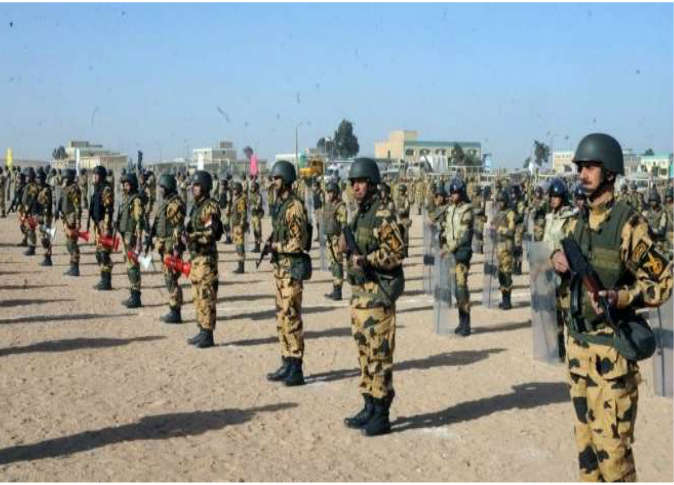Capitalizing on the current revolutionary mood, thousands of state-sanctioned preachers are expected to take to the streets on Saturday to demand full autonomy for and sweeping reforms within Al-Azhar University, the world’s oldest Sunni religious establishment.
Protesters hope that the march in Cairo will draw further attention to their cause. “This issue has to become a demand,” said Rabei Marzouq, a Cairo-based preacher.
“Al-Azhar does not only belong to clerics, but it belongs to all Egyptians,” added the representative from the Coalition of Revered Al-Azhar Pundits, a loose entity formed shortlafter former President Hosni Mubarak’s ouster.
The weekend march will be the sixth protest held by preachers since the January uprising. According to Marzouq, protesters are in a race against time, hoping their plea will be heeded during the transitional period, as the next elected government may not be sympathetic to their cause.
“We have no idea who will control the parliament after the elections, hence, we want the Supreme Council of the Armed Forces (SCAF) and the grand sheikh of Al-Azhar to make these reforms now,” added the 36-year-old imam.
Since the beginning of the twentieth century, Al-Azhar has been a bastion of moderate Islam in the Sunni world. However, its influence began to wane after Egypt’s 1952 military coup.
Driven by a desire to control the religious establishment in the early 1950s, then-President Gamal Abdel Nasser nationalized public and family endowments, stripping clerics of their financial independence. Later on, he passed legislation giving the president the right to appoint the grand sheikh of Al-Azhar, putting an end to a long tradition of electing who held the nation’s top religious position. In the meantime, Nasr utilized Al-Azhar to bestow legitimacy upon his pan-Arab and socialist policies.
The same pattern was maintained by former President Anwar Sadat, who came to power in 1970. Sadat further weakened Al-Azhar by opening the country to radical Islamist groups, which promoted Wahhabism, a puritanical religious movement. Since then, Al-Azhar has lost ideological influence relative to the Wahhabi tide, which has its origins and biggest backers in Saudi Arabia.
After Mubarak took over the state, Al-Azhar continued losing influence to fundamentalist groups that sought to discredit the state-sanctioned religious establishment. The fundamentalists argued that Al-Azhar represented the regime’s interests, rather than true Islam. At the same time, the same Wahhabi elements had permeated Al-Azhar itself.
Many young preachers now insist on reversing the state-controlled policies, contending that an independent Al-Azhar can regain credibility among the masses and stem the influence of radicals.
“The rise of Al-Azhar would mean the death of many religious groups,” said Marzouq.
In their reform movement, preachers are pushing for the return of the Senior Scholars Authority, an elected pan-Islamic clerical body, which was in charge of nominating three clerics from whom the king would choose the grand sheikh of Al-Azhar. When Nasser rose to power, he abrogated this autonomous authority and replaced it with the appointed Islamic Research Academy.
The Senior Scholars Authority should be revived and entrusted again with electing the holder of the highest religious position in the Sunni world, said Abdel Rahman al-Desouki, a spokesperson for the Advancement of the Revered Al-Azhar, another entity promoting reform.
“The Senior Scholars Authority will liberate Al-Azhar from [police] and government hands, and make it an international rather than a local or Arab institution,” said Desouki.
Protesters also demand that all endowments should be brought back under Al-Azhar's control. In the meantime, the Ministry of Endowments should cede control of more than 100,000 mosques to Al-Azhar to ensure the independence of their religious discourse, free from government meddling. Further, the Islamic educational institute Dar al-Ifta al-Misriyyah should be brought under Al-Azhar's ambit, read the statement circulated by preachers in Tahrir Square earlier this month.
“Dar al-Ifta was created by the British to beat Al-Azhar,” said Desouki.
“Why should we keep having three agencies that issue different fatwas (rulings on Islamic law)?” wondered the 37-year-old Cairo-based preacher. “We want to unify Islamic fatwas over crucial matters in the Muslim world to avoid confusion in these societies.”
Experts hold that Dar al-Ifta was first created by the British in the nineteenth century to detract authority from the grand sheikh of Al-Azhar. In post-1952 Egypt, rulers used Dar al-Ifta for similar purposes. The head of Dar al-Ifta, in addition the grand sheikh of Al-Azhar and the minister of endowment, the grand mufti, retains the right to issue his own religious edicts. In the 1990s, Mubarak’s regime reached out to the grand mufti to legitimize some policies that the grand sheikh of Al-Azhar was opposing.
Al-Azhar, which was first established in the tenth century, stands as one of the Muslim world's most prestigious academic institutions, where tens of thousands of students receive their religious education from the elementary stage up to post-graduate studies.
Yet despite its prestige, preachers are rebelling against the academic performance of Al-Azhar, holding that curricula should be upgraded to better reconcile modernity and faith.
“The current curricula are sterile,” said Marzouq. “We spent years studying theology until we realized it was just empty concepts.”
“We want an Al-Azhar graduate to be capable of adapting to his surrounding reality. We need him to benefit from contemporary sciences and use modern technology,” Marzouq added.
This reform blueprint was submitted to the SCAF in May, according to Gamal Qutb, a former head of the Fatwa Committee at Al-Azhar and the architect of most of the reform demands. Yet, he doubts the military's willingness to respond.
“It seems that those in charge are not inclined to look into Al-Azhar. They have not realized the importance and the urgency to reform that institution,” Qutb told al-Masry al-Youm.
Qutb argues that no real reform can be achieved as along as the current leadership of the religious establishment remains in office.
“They are incapable of bringing about change,” Qutb said, referring to Grand Sheikh Ahmed al-Tayyeb and Grand Mufti Ali Gomaa. “We should replace all existing leaders of the religious establishment with figures that were not loyal to the former corrupt regime.”
Despite his uncontested academic credentials, Tayyeb lost credibility among many preachers and clerics after he expressed support for Mubarak’s regime and warned against demonstrations during the revolution. This position had set him at odds with hundreds of clerics who decided to defy his fatwa and flood Tahrir Square.
Yet, almost one month after Mubarak’s ouster, Tayyeb promised to introduce reforms that would ensure Al-Azhar's independence. In March, he entrusted a committee headed by renowned jurist Tareq al-Beshri examine Al-Azhar law and suggest reforms.
In June, Tayyeb issued a document outlining Al-Azhar’s political positions. The Al-Azhar declaration two clauses that emphasized the need to ensure the institution's full independence from the government, have top clerics elect its sheikh rather than having him be appointed by the president, modernize the curricula, and hold Al-Azhar as the sole authority eligible to arbitrate on religious matters.
“The matter does not need a march because we are all demanding independence,” said Abdel Moati Bayoumi, member of the Islamic Research Academy and a former parliamentarian.
“The matter is already being worked on, so why have demonstrations?” wondered Bayoumi, referring to the committee working on amendments.
Nevertheless, this committee has no precise time frame, according to Bayoumi, a situation that might not satisfy rebellious preachers who insist on the changes being implemented before the end of the elections slated for October.
Yet, to Hazem Kandil, a political scientist at the University of California, Los Angeles (UCLA), the committee must take care not to “botch” the reforms in this short period of time.
“Al-Azhar is one of the portfolios whose reform cannot be achieved in one month. It is an institution that needs time,” said Kandil.
Kandil dismissed concerns that Tayyeb would constitute an obstacle to reform, pointing to his good-will gestures of appointing a legal committee to amend the institution's law.
Kandil believes that Tayyeb is probably under pressure from the military to halt the amendment process until a new government is elected.
“The military wants to freeze things until an elected government takes over,” said Kandil. “They want this phase to be over with with minimal turmoil.”
Preachers are expected to march from Fath mosque in Ramses Square to Tahrir Squareon Saturday. Desouki’s faction is determined to hold a sit-in until its demands are met.




